About the Host
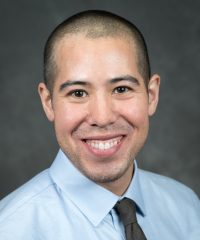
Dr. Nathaniel Chin is the creator and host of Dementia Matters. He is a geriatrician, memory clinic doctor, and medical director for the Wisconsin Alzheimer's Disease Research Center. His father's diagnosis with early onset Alzheimer’s disease inspired him to pursue a career as a geriatrician and scientist focused on dementia prevention, especially in regard to Alzheimer's disease.
Dementia Matters is a podcast about Alzheimer’s disease and other causes of dementia. Creator and host Dr. Nathaniel Chin interviews leading scientists and caregiving experts to bring listeners the latest in Alzheimer's disease news, research and caregiver resources.
Three Ways to Listen
You can listen to episodes through our website or subscribe to Dementia Matters through ApplePodcasts, Spotify, Podbean or wherever you get your podcasts. You can hear Dementia Matters on Fridays at 4 p.m. (CT) and again at 10 p.m. (CT) during the "Science Friday" segment on WMUU Radio, 102.9 FM in Madison, and streaming online.
Contact Us
Email your questions and episode suggestions to dementiamatters@medicine.wisc.edu.
Audio Editors: Eli Gadbury and Alexia Spevacek
Executive Producer: Caoilfhinn Rauwerdink
Producer: Amy Lambright Murphy
Make an Impact
Like what you’re hearing and learning? Make an impact when you make a tax-deductible gift to the Dementia Matters fund of the UW Initiative to End Alzheimer’s.
Recent Episodes
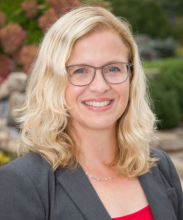
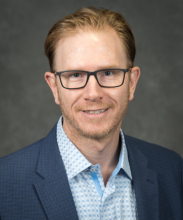
In a special episode of Dementia Matters, Drs. Cynthia Carlsson and Sterling Johnson join the podcast to discuss what they know from lecanemab’s clinical trials following the U.S. Food and Drug Administration’s (FDA) accelerated approval, granted on January 6, 2023.
Guests: Cynthia Carlsson, MD, MS, director, Wisconsin Alzheimer’s Institute, and Sterling Johnson, PhD, leader, Wisconsin Registry for Alzheimer’s Prevention (WRAP), associate director, Wisconsin Alzheimer’s Disease Research Center and Wisconsin Alzheimer’s Institute
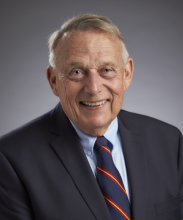
Former Governor of Wisconsin, Martin Schreiber, returns to Dementia Matters to discuss different methods for communicating with a loved one with Alzheimer’s disease, including therapeutic fibbing. Governor Schreiber has been a widely outspoken advocate for Alzheimer’s disease while caring for his late wife Elaine, who passed away from the disease in April of 2022. In this episode, he also talks about his book, My Two Elaines, where he opens up about his experience as a caregiver.
Guest: Martin Schreiber, Former Governor of Wisconsin (1977-1979), Former Lt. Governor of Wisconsin (1971-1977)
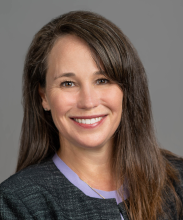
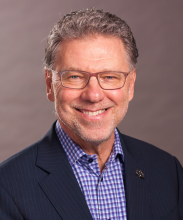
In October 2022, the Alzheimer's Association named Dr. Joanne Pike, the current president of the Association, as the next CEO, succeeding Harry Johns who has served as CEO since 2005. In this episode, Pike and Johns join the podcast to share their insights on how the Alzheimer's Association has grown over the past few decades and the future plans of the association, as well as the next steps in Alzheimer's treatment from both community and medication perspectives.
Guests: Joanne Pike, DrPH, president and CEO, Alzheimer’s Association, Alzheimer’s Impact Movement, and Harry Johns, former CEO, Alzheimer's Association, former CEO and president, Alzheimer's Impact Movement (AIM), trustee and former chair, World Dementia Council
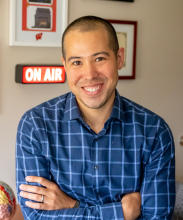
Host Nathaniel Chin, MD, gives an overview of the new Alzheimer’s treatment Leqembi (lecanemab), and highlights results from the second and third phases of its clinical trials. On January 6, 2023, the U.S. Food and Drug Administration (FDA) approved Leqembi (lecanemab-irmb) via the Accelerated Approval pathway for the treatment of Alzheimer’s disease.
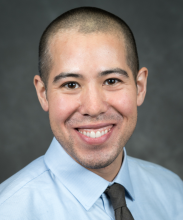
Host Nathaniel Chin, MD, starts the new year by discussing modifiable risk factors for Alzheimer’s disease, commenting on building healthy lifestyle habits for the new year, and reflecting as Dementia Matters celebrates five years of production.

It’s generally known that mitochondria are the powerhouse of cells, but did you know they can play a significant role in aging processes? Through the field of bioenergetics, scientists are looking to study how changes in mitochondria affect us as we age and their connection to Alzheimer’s disease. Dr. Russell Swerdlow joins the podcast to discuss the field of bioenergetics and how mitochondria can impact Alzheimer’s disease and other aspects of aging.
Guest: Russell Swerdlow, MD, director, Kansas Alzheimer’s Disease Research Center, director, Heartland Center for Mitochondrial Medicine, professor of neurology, University of Kansas
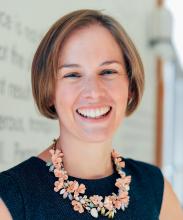
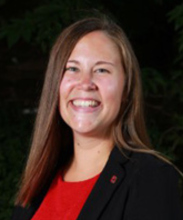
The field of biomarkers is advancing quickly, allowing preclinical Alzheimer’s disease to be identified earlier and earlier in a person’s life. As individuals learn they are at risk for Alzheimer’s years or even decades before experiencing cognitive decline, what does this mean for them and for society as a whole? Drs. Emily Largent and Claire Erickson join the podcast to discuss ten key areas, such as healthcare, insurance, and direct-to-consumer testing, that should be addressed to support those at risk for cognitive decline and broader U.S. society as biomarker testing and disclosures become more prominent.
Guests: Emily Largent, PhD, RN, Emanuel and Robert Hart Assistant Professor, University of Pennsylvania Perelman School of Medicine, and Claire Erickson, PhD, MPA, postdoctoral fellow, University of Pennsylvania Perelman School of Medicine
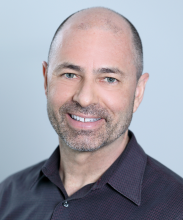
Though brain and cognitive changes are typically diagnosed as one form of dementia, recent studies have shown that mixed dementia is more common than previously thought. Mixed dementia, also known as Multiple-etiology dementia, is a condition where brain changes are caused by more than one neurological disease, such as Alzheimer’s disease, Lewy body dementia (LBD), or frontotemporal dementia. Dr. Roderick Corriveau joins the podcast to discuss what is known about mixed dementia and how the field of studying neurological diseases is advancing to diagnose and treat this condition.
Guest: Roderick Corriveau, PhD, program director, National Institute of Neurological Disorders and Stroke (NINDS), NIH Lead, Alzheimer’s Disease-Related Dementias (ADRD) Summits
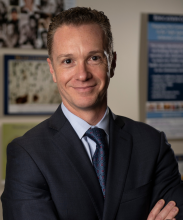
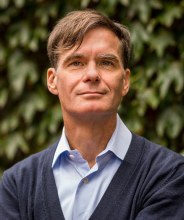
Though several validated biomarkers are studied and used in Alzheimer’s disease research, most research participants don’t have the opportunity to learn their biomarker results afterward, even if they have cognitive impairment. Drs. Jason Karlawish and Josh Grill join the podcast to discuss the debate over sharing biomarker results with research participants, how these powerful disclosures can be made ethically, and why it's as important for the field to study biomarker disclosures as it is to study the biomarkers themselves.
Guests: Josh Grill, PhD, director, Institute for Memory Impairments and Neurological Disorders, associate professor, University of California, Irvine, and Jason Karlawish, MD, co-director, Penn Memory Center, professor of medicine, medical ethics and health policy, and neurology, University of Pennsylvania
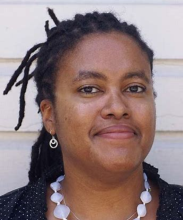
Dementia Matters Special Series: The National Strategy for Alzheimer's Disease Data and Research Part 6
Concluding our special series on the 2022 Spring ADRC Meeting, Dr. Cerise Elliott joins the podcast to discuss the NIA’s work within the field of Alzheimer’s disease research, how the NIA promotes open science to advance research across the ADRC program, and other key takeaways from the spring meeting.
Guest: Cerise Elliott, PhD, program director for clinical interventions and diagnostics, division of neuroscience, National Institute on Aging

Dementia Matters Special Series: The National Strategy for Alzheimer's Disease Data and Research Part 5
Whether it be due to new research findings, innovative approaches and ideas, or technological advancements, Alzheimer’s disease research is constantly evolving. Now, dementia research is headed into the digital frontier. Dr. Rhoda Au joins the podcast to discuss digital biomarkers, gamifying cognitive testing, and how the field of Alzheimer’s disease research is entering its digital age.
Guest: Rhoda Au, PhD, digital technology leader, Boston University Alzheimer’s Disease Research Center, co-principal investigator, director of neuropsychology, Framingham Heart Study, professor, Boston University School of Medicine
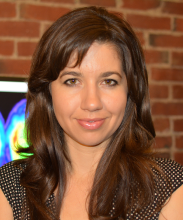
Dementia Matters Special Series: The National Strategy for Alzheimer's Disease Data and Research Part 4
Brain imaging is a key tool in Alzheimer’s disease research and diagnoses, allowing scientists to see changes in the brain years, even decades, before an individual experiences symptoms of dementia. The data these images provide researchers with is incredibly useful, leading the National Alzheimer’s Coordinating Center to take up numerous efforts to standardize, unify and share this type of data across the Alzheimer’s Disease Research Centers. Dr. Beth Mormino joins the podcast to discuss the NIA’s SCAN initiative, the new “legacy” data set, and the importance of standardizing MRI and PET scan procedures to predict brain trajectories better.
Guest: Beth Mormino, PhD, assistant professor, Stanford University
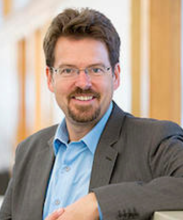
Dementia Matters Special Series: The National Strategy for Alzheimer's Disease Data and Research Part 3
With big data comes big responsibility. Dr. Sean Mooney joins the podcast to discuss his work with NACC, the precautions NACC takes to keep participant data secure, and how this data can be used to better predict Alzheimer’s disease risk to allow for earlier interventions.
Guest: Sean Mooney, PhD, associate director of technology, National Alzheimer’s Coordinating Center, Chief Research Information Officer, UW Medicine, professor, University of Washington
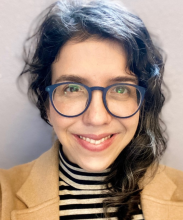
Dementia Matters Special Series: The National Strategy for Alzheimer's Disease Data and Research Part 2
Dr. Sarah Biber, the program director for NACC, joins the podcast to discuss building a one-stop shop for Alzheimer’s Disease Research Center (ADRC) data and what it means for the future of collaborative Alzheimer’s disease research.
Guest: Sarah Biber, PhD, program director, National Alzheimer’s Coordinating Center

Dementia Matters Special Series: The National Strategy for Alzheimer's Disease Data and Research Part 1:
Kicking off our six-episode series on the National Alzheimer’s Coordinating Center and their Spring 2022 ADRC meeting, Dr. Walter Kukull joins the podcast. He explains what NACC is, what they do with the data they collect from the 42+ Alzheimer’s Disease Research Centers, the center’s biannual ADRC meetings and what he’s most excited about for the next five years of Alzheimer’s disease research.
Guest: Walter Kukull, PhD, director, National Alzheimer’s Coordinating Center, professor, University of Washington department of epidemiology
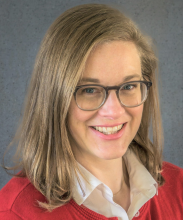
Researchers typically recognize the APOE e4 gene as a significant genetic risk factor for cognitive decline and dementia. However, a new study has found that the allele is not linked to neurodegeneration for all races and ethnic groups, specifically for American Indian populations. Dr. Astrid Suchy-Dicey joins the podcast to discuss her study, the importance of representation in Alzheimer’s disease research, hypotheses for why this allele isn’t a risk factor for all populations and what it means for research going forward.
Guest: Astrid Suchy-Dicey, PhD, epidemiologist, assistant research professor, Washington State University, Institute for Research and Education to Advance Community Health (IREACH)

Research participants are recruited through a variety of practices. One of the most popular tools are registries, but how can registries affect diversity and representation within research? Josh Grill joins the podcast to discuss his work studying research registries, their effects on representation for disadvantaged communities, and how research recruitment and outreach can be improved going forward.
Guest: Josh Grill, PhD, director, Institute for Memory Impairments and Neurological Disorders, associate professor, University of California, Irvine
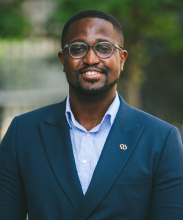
AAIC Special Series Part 8:
Closing out our special series spotlighting the 2022 Alzheimer’s Association International Conference, Dr. Percy Griffin joins the podcast to discuss highlights from this year’s event.
Guest: Percy Griffin, PhD, director, scientific engagement, Alzheimer’s Association
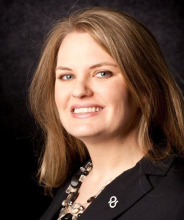
AAIC Special Series Part 7:
Recent studies have shown that 1 in 5 U.S. adults who were diagnosed with COVID-19 now deal with Long COVID, a condition where individuals report fatigue, cognitive issues, difficulty breathing, and other symptoms lasting at least three months after infection. With these reported effects on cognition and brain health, what else do we know about COVID’s impact on the brain? Dr. Heather Snyder joins us to talk about what we know about COVID-19’s effects on the brain and her upcoming scientific session at AAIC 2022.
Guest: Heather Snyder, PhD, vice president, medical & scientific relations, Alzheimer’s Association
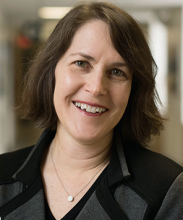
AAIC Special Series Part 6:
Dr. Krista Lanctôt joins the podcast to discuss apathy, how it develops in people with Alzheimer’s disease, and her upcoming AAIC 2022 plenary talk.
Guest: Krista Lanctôt, PhD, senior scientist, Sunnybrook Health Sciences Centre, full professor, University of Toronto
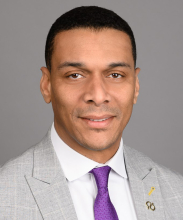
AAIC Special Series Part 5:
Bringing together scientists, clinicians, and research participants from all over the world, AAIC 2022 showcases the work and experiences of people from unique backgrounds and perspectives and highlights the importance of diversity in Alzheimer’s disease research. Dr. Carl Hill joins the podcast to discuss why diversity is important in scientific research and how AAIC 2022 supports efforts to make Alzheimer’s disease research more equitable and inclusive.
Guest: Carl Hill, PhD, MPH, chief diversity, equity and inclusion officer, Alzheimer’s Association

AAIC Special Series Part 4:
Research into delirium, a condition where older adults experience acute confusional states during hospitalizations, and its connections to dementia have led to numerous advancements in hospital care and treatments. Dr. Sharon Inouye joins the podcast to discuss how our understanding of delirium has changed over the past 30 years and previews her upcoming AAIC plenary talk about the intersection of delirium and dementia.
Guest: Sharon Inouye, PhD, director, Aging Brain Center, Hinda and Arthur Marcus Institute for Aging Research, professor, Harvard Medical School
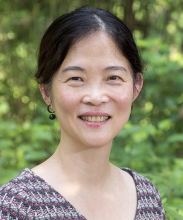
AAIC Special Series Part 3:
Mild cognitive impairment (MCI) is an early stage of memory loss and cognitive impairment that can develop into dementia. While physicians have medications they can prescribe to manage the condition, many researchers and doctors are focusing on lifestyle interventions that could support a person’s cognition and address behavioral changes. Dr. Linda Lam joins the podcast to discuss her work studying mild cognitive impairment and preview her upcoming AAIC plenary talk on non-pharmacological treatments for MCI and dementia.
Guest: Linda Lam, MBChB, MD, professor, Chinese University of Hong Kong

AAIC Special Series Part 2:
Attending scientific conferences is usually a major commitment, often requiring attendees to travel, pay attendance fees, and take time out during the day to learn about groundbreaking research. Recent conferences like the Alzheimer’s Association International Conference (AAIC) are opening their doors virtually to make the events more accessible to research participants, care partners, and the general public. Sarah Walter joins the podcast as part of our special series previewing AAIC 2022 to discuss her article on how virtual scientific conferences impact research participant engagement and why it’s important for participants to hear about the research they’re involved in.
Guest: Sarah Walter, MSc, program administrator, Alzheimer's Clinical Trials Consortium, Alzheimer's Therapeutic Research Institute, University of Southern California
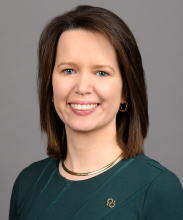
AAIC Special Series Part 1:
To kick off our month-long special series previewing the 2022 Alzheimer’s Association International Conference, or AAIC, we’ve invited Claire Sexton, senior director of the Alzheimer’s Association’s scientific programs, to join us to discuss the goals of AAIC, how the pandemic impacted the influential conference, and what she’s looking forward to at this year’s event.
Guest: Claire Sexton, DPhil, senior director of scientific programs and outreach, Alzheimer’s Association




